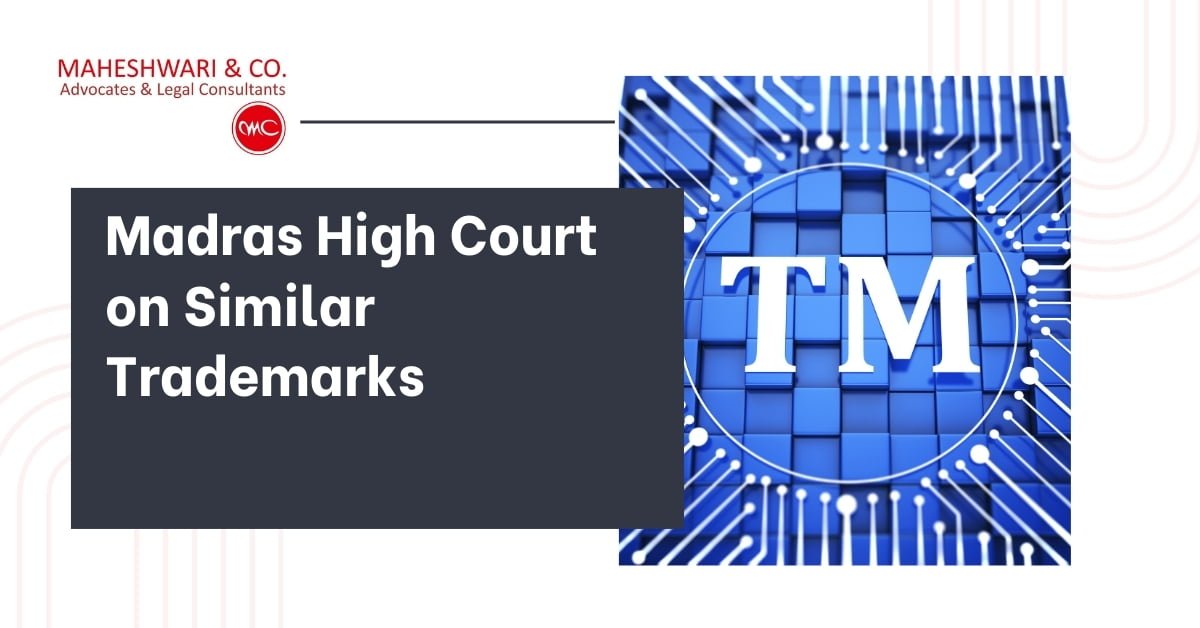It is generally understood that trademarks cannot be infringed upon once registered before the statutory authority. However, the case of “N.Ranga Rao & Sons Private Limited vs. Sree Annapoorna Agro Foods”, illustrates the outcomes when there is a similarity between trademarks registered in different classes with regards to the goods and services. It pits a well-established trademark against a relatively new one, with both users engaged in radically different lines of goods and services.
The Hon’ble High Court of Madras (The Court) ruled that the material facts demonstrate that the plaintiff is a major producer of incense sticks. On the other hand, the defendant provided documentation to support their claim that they had been producing edible oils since 2010—eight years before the lawsuit was filed—under the brand name “Cycle.” The court additionally stated that there was no proof that the plaintiff also sold edible oils using the contested mark. Therefore, the defendant, Sree Annapurna Agro Foods, is the previous user of the trademark cycle for the sale of edible oils.
The registration certificates and other records demonstrate that the plaintiff does not possess an edible oil registration under class 29 of the Trademarks Act, 1999.
Furthermore, it was stated that the term “cycle” is a typical English word. The plaintiff willfully uses it for things like hair oil, dhoop, and incense sticks. The phrase “Cycle Brand Agarbatthis” (incense sticks) and the oval shape in which the cycle device is located give the mark its distinctive and unique qualities. These qualities are not inherent in the term or device cycle alone. As a result, the term cycle only became unique and distinctive when it was combined with other words or objects.
The plaintiff has failed to demonstrate how the defendant’s use of the “Cycle” name mark is harmful, the court said, even if the defendant adopts an identical name mark.
The complainant utilized the trademark “Cycle” for scented goods intended for external consumption, such as hair oil, such as incense sticks. However, the defendant applied the aforementioned mark on edible oil that is intended for internal use. It is clear from a comparison of both parties’ products that there is a significant distinction between them.
It was further ruled that the plaintiff’s reputation and goodwill are limited to goods like hair oil, dhoop, and incense sticks. It was determined that the plaintiff’s claim is wholly without foundation since it is extremely improbable that this would create confusion in the minds of general public to differentiate between the defendant’s and plaintiff’s products.
Judgement
The Hon’ble Madras high court, in the present case, ruled in the favor of the Defendants by relying on the concept of “previous user”. The court in its decision allowed the defendant to use the trademark “Cycle” for their product, which is edible oil. The court further noted that the defendant had only ever used the mark in connection with edible oil, while the plaintiff had never registered food oil under Class 29. Furthermore, before the present case was filed, both parties had been using the mark for more than eight years.
The defendants were granted the permission by the court to continue using the trademark for the purposes of selling and manufacturing edible oil since these activities are carried out in good faith and with legal justification. Based on the aforementioned, the court dismissed the lawsuit brought by the plaintiff, N. Ranga Rao & Sons Pvt. Ltd., refusing the defendant’s request for a permanent injunction prohibiting them from using the mark “Cycle” in their trade.
Conclusion
Based on the ruling of the court, it is clear that the co-existence of trademarks is extremely likely to occur depending on variables such past usage, kind of goods, etc. The plaintiff cannot prevent the defendant in the current case from utilizing the brand name “Cycle,” as is evident. There are components to a trademark that will be common to all and cannot be taken as grounds for infringement.
Author – Shyamli Shukla, Associates
Co-Author – Madhav Sharma, Intern






